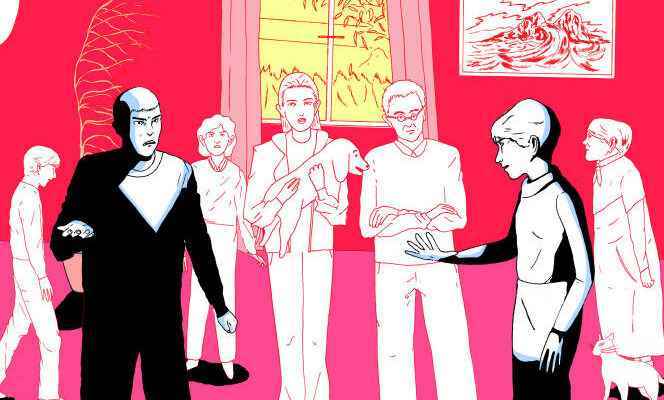Ji come from a family where children are pampered. I have always been close to my parents, and in particular to my mother, who stopped working when my first brother was born. She was a cleaning lady in a hospital, but the conditions became more and more complicated, and my father, a railway worker, worked a lot. Together, we played video games – or rather I watched her play. When I was in high school, I kinda stuck with her. On weekends and Wednesdays when she visited my brother’s godmother, I would join her and she would gently laugh at me. She nicknamed me “the backpack”. The relationship with my father was more distant, because he was angry and so was I, but we still had a good relationship.
I adhered to the values of my parents. I don’t remember any fundamental discord. I had frank discussions with them, sometimes arguments, but they did not alter our bond. Things started to change when their relationship fell apart. I was in final year, I could see that they weren’t happy. My mother wanted to go back to work. She found a job as a saleswoman in which she quickly flourished. They ended up splitting up and selling the house.
Coming out
For my part, I was very involved in high school, I loved math, which satisfied my parents: they always wanted us to study. They already saw me as a doctor! After the baccalaureate, I did a preparation, and I was admitted to an engineering school in Paris. It was that summer that I came out, first to my mother. She took it pretty well, although I think she was worried about not having grandchildren. She is a very motherly woman.
From the moment I left my city for Paris, I confided in her less, because I didn’t come home very often and because tensions were emerging between us. I remember a conversation where she confided to me that she had not had a happy life. I told him in return that I, too, felt unhappy at times in my childhood. She took it very badly. She frowned, as if I was accusing her, when I wasn’t. She found me ungrateful. I received messages from my family asking me to be nice to her, not to make her suffer.
“For the first time, I had the impression of being surrounded by people who did not have the same apprehension of the world as me”
In Paris, I got involved in my school’s LGBT association. Frankly, we were not hooligans: when I arrived, the association was not very active. When I told my mother about it over the Easter break, she was worried, she was worried that I was in trouble. “Be careful not to proselytize, she told me. It pisses people off. » I got on my high horse and she took her words back. It’s a break for me: before, we had never had any ideological opposition. During these same holidays, during a meal, one of my cousins spoke of provocative outfits of girls, implying that this could constitute an incitement to rape. My mother somewhat agreed with him. For the first time, I had the impression of being surrounded by people who did not have the same apprehension of the world as me. The impression, too, that the tensions between my mother and I were taking on a new political dimension.
You have 58.99% of this article left to read. The following is for subscribers only.
